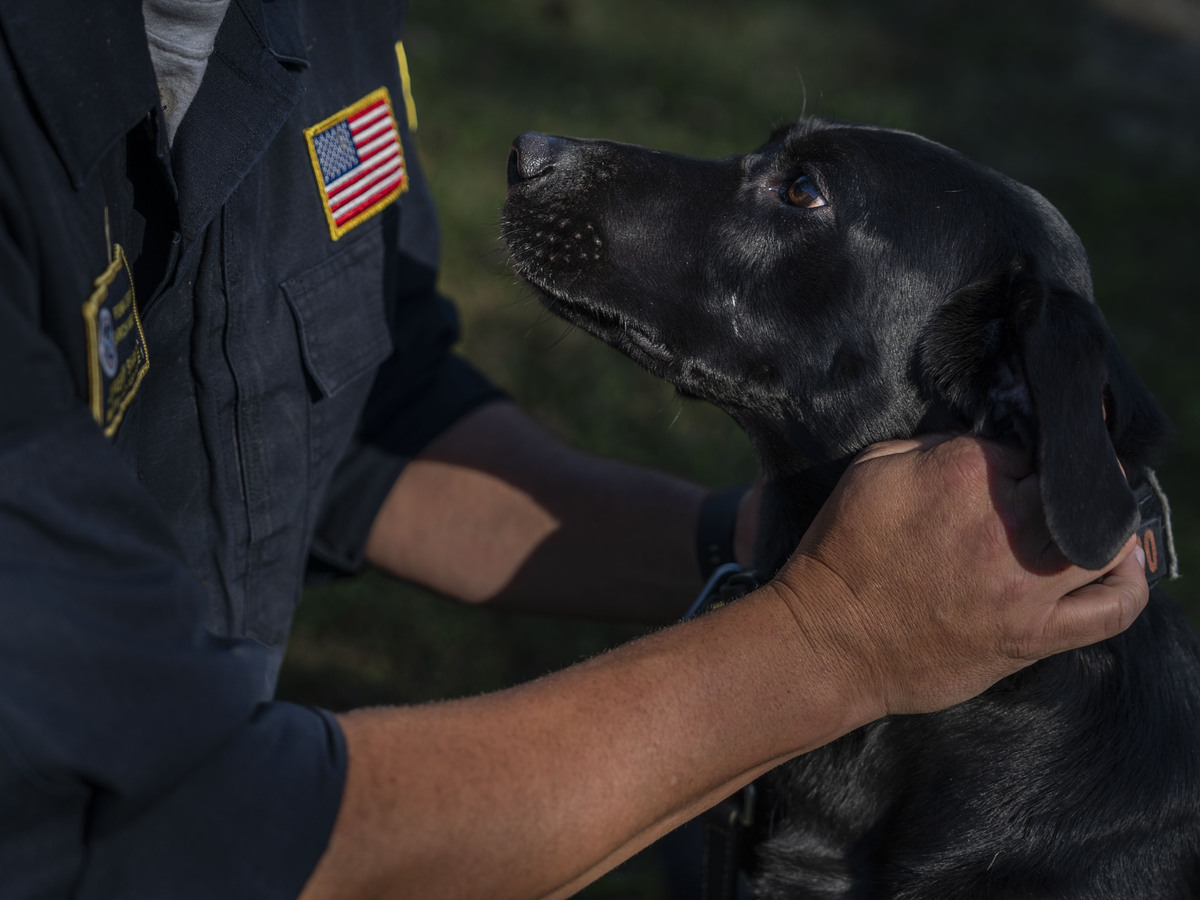
Jeremy Shaffner plays with his search and rescue dog Parker in Brooklyn, Maryland, on Wednesday, Oct. 18, 2023. Haiyun Jiang/Haiyun Jiang for NPR hide caption

Jeremy Shaffner plays with his search and rescue dog Parker in Brooklyn, Maryland, on Wednesday, Oct. 18, 2023.
Haiyun Jiang/Haiyun Jiang for NPRThis year the U.S. has experienced devastating natural disasters.
Outbreaks of tornadoes leveled entire neighborhoods.
Flooding trapped people in their homes.
Wildfires burned out of control.
When people go missing during these catastrophes, it's a race against time to find them alive – or their remains.
That crucial search is often carried out by specially trained dogs.
FEMA has 280 certified detection dogs trained to find people in disasters. Another 80 dogs are trained to search for human remains.
NPR's Scott Detrow visits a Maryland training facility where dogs, and their handlers, learn skills that could save lives.
Email us at
This episode was produced by Erika Ryan and Brianna Scott. It was edited by Sarah Handel and Jeanette Woods. Our executive producer is Sami Yenigun.

 Live Radio
Live Radio